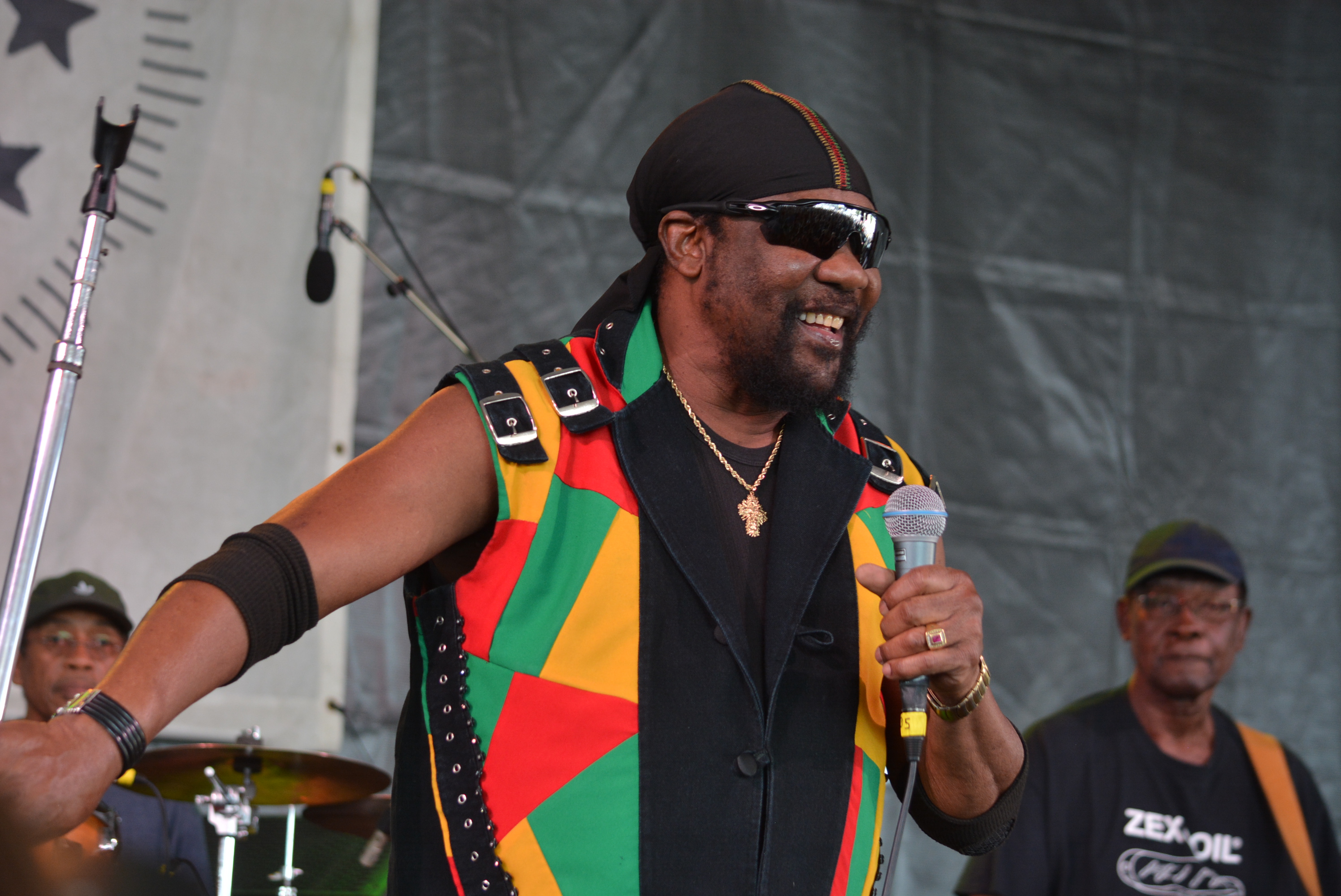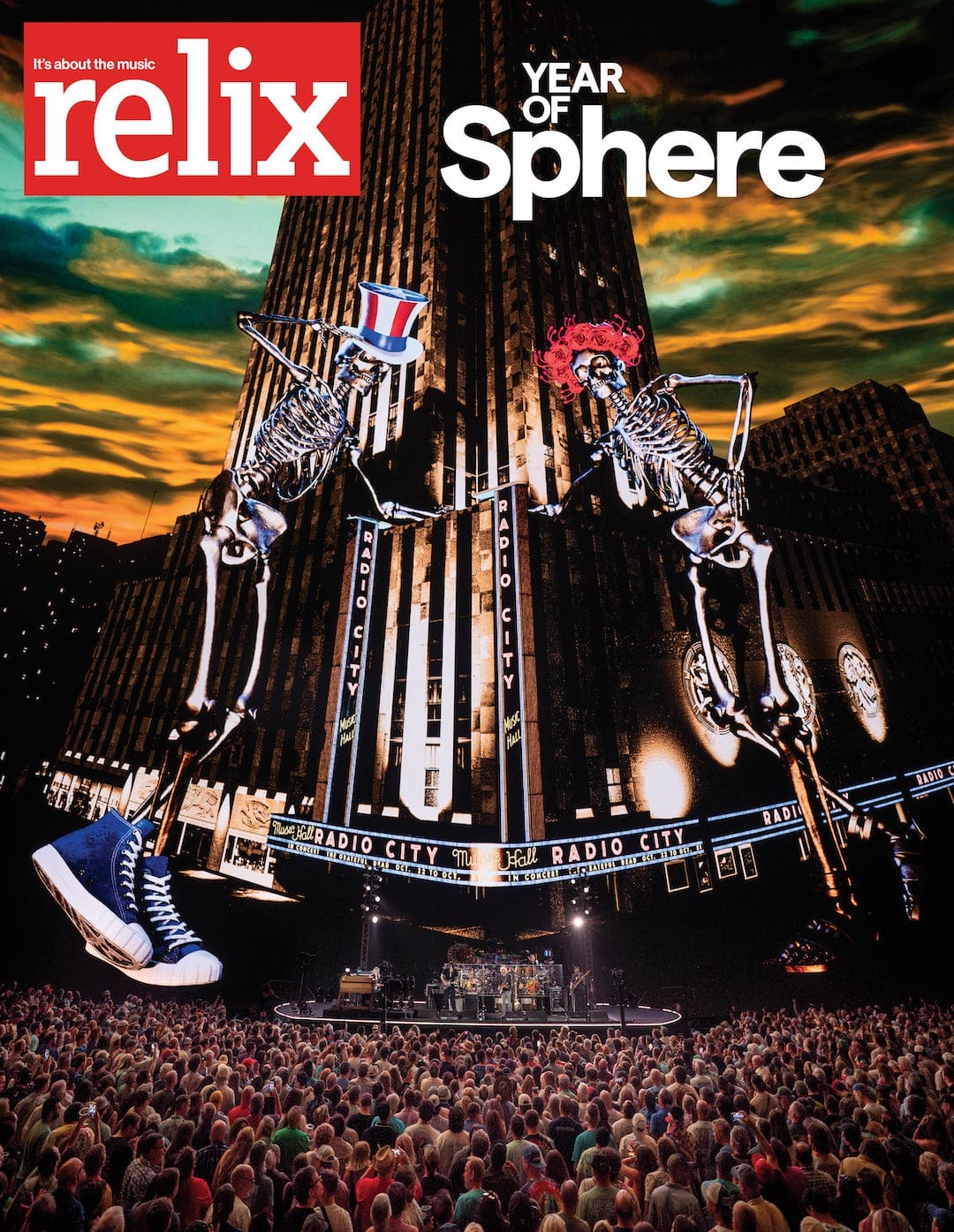Global Beat: Toots & The Maytals

Photo credit: Dean Budnick
Toots Hibbert had some reservations when he was booked to perform at Arrington, Va.’s LOCKN’ this past summer—and for good reason. After all, the reggae innovator hadn’t visited the commonwealth in over five years, ever since a drunken fan in Richmond threw a bottle that struck him in the face.
“The guy that threw the bottle didn’t throw it at me,” Hibbert recalls, his signature optimism intact. “He was singing [my version of John Denver’s] ‘Take Me Home, Country Roads,’ and he just got crazy. It was a college show. I was singing for nothing; I was singing for free for the students. And everything was so nice and happy. He collected a vodka bottle—he stole it I think—drank it and threw it. Can you imagine?”
After filing a $20 million lawsuit, Hibbert received a confidential settlement and his assailant served six months in jail.
“I sympathize with him, with his mom and father— this is where I got the knock,” he says removing his red bucket hat and pointing to his forehead. “I thank God I’m still alive.”
And sitting in Relix’s New York office on a hot afternoon, grinning and laughing, Hibbert certainly exudes that thankfulness. He acts much younger than 75, too. Raised in Jamaica, Hibbert grew into a national star during the mid‘60s, recording countless tunes with The Maytals and personally popularizing the phrase “reggae.” (The band’s 1968 cut “Do the Reggay” was the first to use the genre title.)
However, it was only after an 18-month prison stint for marijuana possession that Hibbert recorded his breakthrough hit—“5446 (That’s My Number)”—and became a globally recognized recording artist.
Now, a half-century later, after more than a dozen records and a 2004 Grammy for Best Reggae Album, Hibbert is still churning out new material. He recently released “A Song Call Marley,” a tune he can trace back to his time as a young man in Jamaica.
“Me and Bob Marley was two groups that was very interlinked,” Hibbert says. “It was Bob Marley and The Wailers and Toots & The Maytals.” He fondly remembers his “close friendship” with the reggae icon, walking down the bustling Orange Street in Kingston and debating the rapidly evolving tenets of rasta culture. “A Song Call Marley” is the only new tune dotting Hibbert’s current setlist, but when he first announced his return to the road, a press release confirmed that he had two albums worth of material ready to record. “I have more than two albums in me,” Hibbert laughs in reaction to the statement. “I have a lot of songs. I’m waiting for the time. When young people request it, I will deliver it.”
The reggae legend spent some time off the road recovering following his onstage attack, but has since returned to the live music circuit at full force. Hibbert is currently touring in celebration of the 50th anniversary of “Do the Reggay,” and his sevenpiece band is in fighting shape. “I play everything,” Hibbert says of his onstage presence. “I play keyboard, bass, kick drum—I play everything. My son also plays bass. And then my whole group— Jackie Jackson, Paul Douglas, Radcliffe ‘Dougie’ Bryan, Carl Harvey, Charles Farquharson and all—they facilitate everything where music is concerned.”
Hibbert is also adamant that he’s the sole torchbearer of the Toots & The Maytals moniker. Founding members like Henry “Raleigh” Gordon and Nathaniel “Jerry” Matthias remain tied to the band’s history, but there is no question whose band it is.
“Toots & The Maytals? What is that? That’s crazy! I never liked it, and I don’t like it now, but I have to respect it because that’s what people know me as,” he exclaims, tossing his hands in the air.
When Hibbert finally made his return to Virginia this past August at LOCKN’, he pulled out tunes like “Reggae Got Soul” and “Never Grow Old” from his back catalog, introduced his Virginia fans to “A Song Call Marley” and brought out special guest Taj Mahal for versions of “Take Me Home, Country Roads” and “Monkey Man.”
From his expressive vocals and seemingly boundless energy onstage, Hibbert managed to revive the lateafternoon crowd and put the 2013 incident behind him once and for all.
“I enjoy playing wherever people are, whether white or black, everywhere,” he says. “Indoors or outdoors, I enjoy singing my songs to them, and they enjoy listening to me. They love me so much, and I love them so much. Believe in everybody to do good things and love people the way you love yourself.”



















